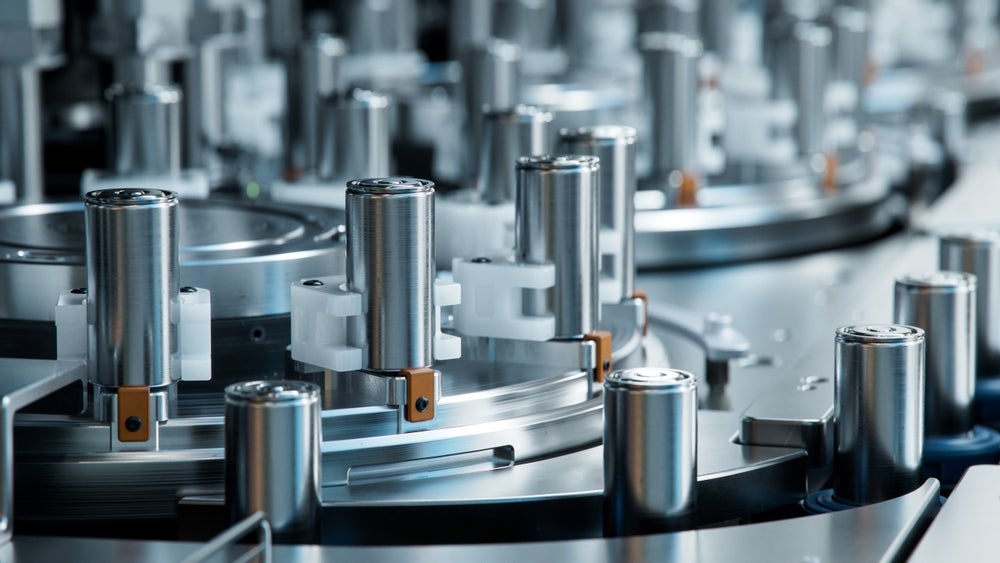Sign up for daily news updates from CleanTechnica on email. Or follow us on Google News!
The European Union this week raised import tariffs on Chinese-made electric cars to as much as 38%. According to the New York Times, the EU called the new tariffs an effort to protect the region’s manufacturers from unfair competition. It comes one month after the US raised its import tariffs on Chinese-made electric cars to 100%. The Times says the new EU tariffs open another front in the escalating trade tensions with China amid growing fears about a glut of Chinese green tech goods flooding global markets. It also reflects the challenges that traditional automakers in Europe and the United States face from Chinese companies who are able to produce their electric cars at much lower cost than automakers in Europe and North America.
The reason is clear. The Chinese government has made it a national policy to promote the manufacture of electric cars in every way possible. There are a zillion things that need to happen before a finished EV rolls of the assembly line. China has made it a national policy for the past 20 years to make sure that all those inputs are harmonized and maximized to the fullest extent. A generation ago, people worried about Japan, Inc. China today is Japan, Inc. on steroids.
Stanching A Flood Of Chinese Electric Cars
Foreign manufacturers like General Motors, Volkswagen, Fiat, Mercedes, and BMW, among others, were invited to set up factories in China, provided they were co-owned by Chinese companies. Step into my parlor, said the spider to the fly. That co-ownership involved a transfer of technology. Those companies taught their Chinese partners how to produce automobiles in mass quantities, and now they are ready for their final exam. It could be argued they learned their lessons too well. They are producing more electric cars than their domestic market can absorb. They need to find foreign markets that will buy their excess production to prevent severe economic pain at home.
The situation is reminiscent of the sorcerer’s apprentice scene in Disney’s Fantasia where Mickey Mouse commands the brooms to haul water and then almost drowns in the flood when he can’t figure out how to turn off the process he created. Be careful what you wish for, China. You just might get it!
CNN reports the new tariffs vary between 17.4 and 38.1%. They will be imposed on top of the existing EU tariff of 10%, according to a statement from the European Commission. That takes the overall duty to close to 50%. The provisional decision follows an investigation into China’s state support for electric vehicle makers. The European Commission, the EU’s executive arm, launched the probe in October to establish whether Chinese EV prices are artificially low because of subsidies that harm European carmakers. The Commission said its investigation had provisionally concluded that the EV industry in China “benefits from unfair subsidization, which is causing a threat of economic injury.”
The European Commission has applied different tariffs to three major EV manufacturers. BYD, which sells almost as many electric cars worldwide as Tesla, has the lowest additional duty at 17.1%. Geely, which owns Sweden’s Volvo, will pay an extra 20% tariff, while SAIC, which is owned by the Chinese government, will see its tariffs increase by 38.1%. As for other EV makers in China, those that cooperated with the EU investigation will see a 21% additional duty, while those that did not — like SAIC — will be subject to the extra 38.1% duty. Tesla, which manufactures many of its cars in China, could receive an “individually calculated duty rate” at a later stage “following a substantiated request” that the new tariffs be applied to individual models rather than to all its products.
The sharp increase in tariffs highlights the more protective stance on trade with China that Brussels and Washington are adopting. Western officials are concerned that jobs and strategically important industries could be wiped out by cheap Chinese imports. The EU is also probing China’s support for wind turbine companies and solar panel suppliers, CNN says. It claims the new tariffs on Chinese-made electric cars are likely to kick off intense negotiations between Beijing and Brussels aimed at averting a damaging trade war. The EU must decide by November whether to adopt the tariffs permanently.
A Trade War Looms Over Electric Cars
Beijing’s reaction to the tariffs “could lead to a trade war (with Europe), which would be devastating for a region that is still heavily dependent on Chinese-dominated supply chains in order to achieve its lofty climate goals,” Will Roberts, head of automotive research at consultancy Rho Motion, said in a statement Friday.
The European Union defended the action, saying in a statement that its investigation found the supply chain for electric cars in China “benefits heavily from unfair subsidies in China, and that the influx of subsidized Chinese imports at artificially low prices therefore presents a threat of clearly foreseeable and imminent injury to E.U. industry.” China decried the tariffs as lacking “factual and legal basis” that amounted to “weaponizing economic and trade issues,” said He Yadong, a spokesman for the commerce ministry. “This is not in line with the consensus reached by Chinese and European leaders on strengthening cooperation, and will affect the atmosphere of bilateral economic and trade cooperation between China and Europe,” Mr. He said.
Europe has every reason to be worried, as its automotive sector provides nearly 13 million jobs across the 27-nation bloc, the world’s second largest market for electric cars after China. Imports of electric cars from China last year reached $11.5 billion, up from $1.6 billion in 2020. About 37% of all electric cars imported to Europe come from China, including cars made by Tesla, BMW, and Dacia, which is owned by Renault. Chinese brands account for 19% of the European market for EVs and their numbers have been growing steadily, according to a study by Rhodium Group.
Europe is open to engaging with Chinese officials to resolve the dispute, said senior EU communications officials, who insisted that the bloc was not looking to introduce higher tariffs for the sake of it, but was moving to defend its nations’ domestic industry. Ursula von der Leyen, president of the European Commission, said last month that Europe was taking a “tailored approach” to calculating its increase in tariffs from the existing 10%, which would “correspond to the level of damage” caused. Tariffs for the other exporting companies will be based on the weighted average of the duty imposed on the three that were investigated.
Before the announcement, China had warned that it could retaliate by raising tariffs on gas-powered cars imported from Europe, and agricultural and aviation goods. China already applies a 15% duty on all electric vehicles imported from Europe. German automakers fear the new tariffs will drive up prices in Europe and set off retaliation from the Chinese, ultimately hurting them in both markets. Chancellor Olaf Scholz of Germany criticized the increased duties last week during a visit to a Stellantis factory in Rüsselsheim. “Isolation and illegal customs barriers — that ultimately just makes everything more expensive, and everyone poorer,” he said. “We do not close our markets to foreign companies, because we do not want that for our companies either.”
The Takeaway
The tariff situation is a stark example of one to the enduring failures of capitalist theory, in which short term profits take precedence over everything else. When Nixon went to China in 1972, it was not to help the Chinese, it was to pry open the door for American businesses to sell their goods and services to a previously untapped market of a billion plus people. No one then gave a thought to what the consequences might be — it was simply a play to exploit an economic advantage for American business.
Today, the tables have turned and everybody acts like there was no way to see this coming. That’s because the capitalist model seldom takes long term factors into account. Its focus is always tactical, never strategic. The Chinese, however, have been thinking strategically for thousands of years. They have gotten pretty good at it, too. The West thought the trade relationship with China would be pretty much one way and all to its advantage. China, with its strategic thinking, saw the opportunity electric cars offered and seized it with both hands. Now the chickens have come home to roost and no one knows quite knows what to do with the industrial juggernaut that China has become.
This is not to excuse the Chinese communist party for its repressive behavior, suppression of human rights, crushing of dissent, or abuse of its Indigenous minorities. There is a lot more at stake here than just electric cars and solar panels. No discussion of economics can avoid taking into account the pertinent political aspects as well. In the world of electric cars, Western automakers are going to have to learn how to compete, and quickly. If competition from China substantially disrupts domestic manufacturing, the political consequences will be dramatic and could bring down governments. Ultimately, that is what is at stake in the world of electric cars today.
Have a tip for CleanTechnica? Want to advertise? Want to suggest a guest for our CleanTech Talk podcast? Contact us here.
Latest CleanTechnica.TV Videos
CleanTechnica uses affiliate links. See our policy here.



